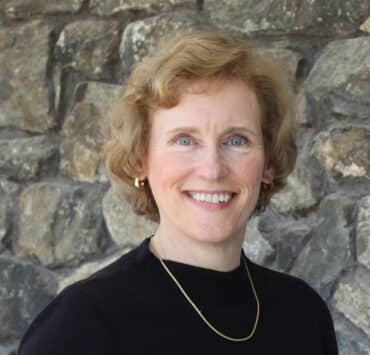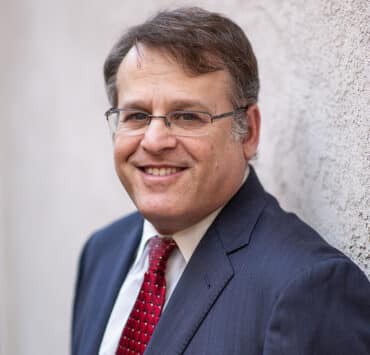|
Getting your Trinity Audio player ready...
|
“ECP represents the interests of a variety of global investors, including several state and local pension plans,” says Jennifer Gray, the company’s managing director, deputy general counsel, and chief compliance officer.
“Through us, they invest in a multitude of energy transition projects, including decarbonization, sustainability, and renewable infrastructure. Our focus is on bringing value to the businesses and to the communities they serve.”
And ECP has a formidable portfolio. With more than $22 billion in capital commitments raised, it’s the largest private owner of power and renewable energy in the US.

After earning a BS in international business and a JD from Pepperdine University, Gray began her career with a short stint at Latham and Watkins, a global firm whose practice spans transactional, litigation, corporate, and regulatory law.
“I was there for about two years,” she recalls, “primarily in project financing and the funds formation teams. Then I was snapped up by ECP in 2008.”
Gray found she preferred in-house work. “In private practice, you negotiate and close the deal—and then move on to the next one. But in-house, you’re more deeply involved with working with investors to determine their goals and aspirations—and accomplishing those goals through active portfolio company management and value creation,” she says. “I’ve also learned about many different areas of law—something that probably wouldn’t have happened if I’d stayed with Latham and specialized.”
Consequently, Gray has become a legal jack-of-all-trades. “It’s complex work,” she says, “because each investor has a particular agenda, tax exposures, and regulatory requirements, and I need to understand them all so our investments are in compliance.”
That’s why, at any given time, she can be deep into M&A and fundraising through due diligence sessions, legal and compliance issues, negotiating legal documents, regulations, tax issues, and much more.
Fortunately, ECP fosters open communication within its individual deal teams. “It promotes the sharing and exploring of ideas and experiences,” Gray says. “If you’re not actually working with someone on a particular deal, you still have an opportunity to learn.”
Gray also cochairs ECP’s environmental, social, and governance committee. A relative of corporate social responsibility, ESG is at the forefront, she says, particularly via European investors. The qualitative and sometimes quantitative aspects of ESG helps them identify material risks and growth opportunities before investing.
Depending on the investment, ECP’s concerns might be as simple as asking, “Do you take ESG factors into consideration when investing?” or as complex as insisting on a formal ESG program, transparency regarding climate change, and provisions for energy reliability. ECP is at the vanguard of tackling it all.
“There are many new regulations, especially for Europe and from the SEC, on the way,” Gray says, “and investors are paying attention to that. It’s no longer just a question of making money, but how we make the money.”
And with its long history in the renewable energy sector, the company can leverage its track record to satisfy investors’ concerns. “It’s always been ingrained in the way we handle our investments, but we’re really focusing on properly collecting the data we know is there,” she says.
“It’s no longer just a question of making money, but how we make the money.”
At ECP, an attorney is an active part of every deal team, and the arrangement ensures everyone sees how each component of a developing deal fits with the others. Those attorneys often also have seats on acquired companies’ boards, bringing a unique perspective that other private equity firms may not provide.
ECP’s integrated team dynamics and fluidity of cooperation were apparent when it acquired the natural gas/geothermal electricity generator Calpine, which ECP identified as an undervalued publicly held company. “It was a highly complex transaction,” Gray says, “and we had to raise equity and complete negotiations in just a few months. Within those months, we secured roughly $5 billion in equity while simultaneously negotiating all the M&A documents to take it private, completing security filings, and complying with numerous regulatory matters. It was an all-hands-on-deck effort that led to a successful acquisition.”
And when ECP acquired Terra-Gen in 2015, the renewable energy developer faced the expiration of many long-term contracts with public utilities and government tax incentives.
“We were able to create value through executing new contracts, building new or repowering existing wind farms using the latest technology, and recently raised another $1.65 billion continuation fund to allow the company to keep growing,” she says. “Terra-Gen continues to increase its utility-scale wind/solar generation and battery storage capabilities, building the largest solar + storage project in the US.”
There are many moving parts in such transactions, so ECP frequently relies on outside counsel to help develop and coordinate complex documents that come with every M&A deal. “We work only with law firms that mesh well with our management teams and outside investors,” she says.
Gray obviously wears many hats, but it’s why deal teams and other business leaders see her as an active participant, not just a resource for resolving crises.
“There’s a very collaborative spirit at ECP, and it helps that I am involved in deals from day one. I make just as many business decisions as legal decisions, though I can wear the black hat of legal if I need to,’” she says.
***
Kirkland & Ellis:
“I have worked with Jen for more than a decade. She is incredibly smart, thorough, and knowledgeable about the private equity market and the regulatory landscape. We greatly value our relationship with Jen and ECP.”
–Justin Solomon, Partner


